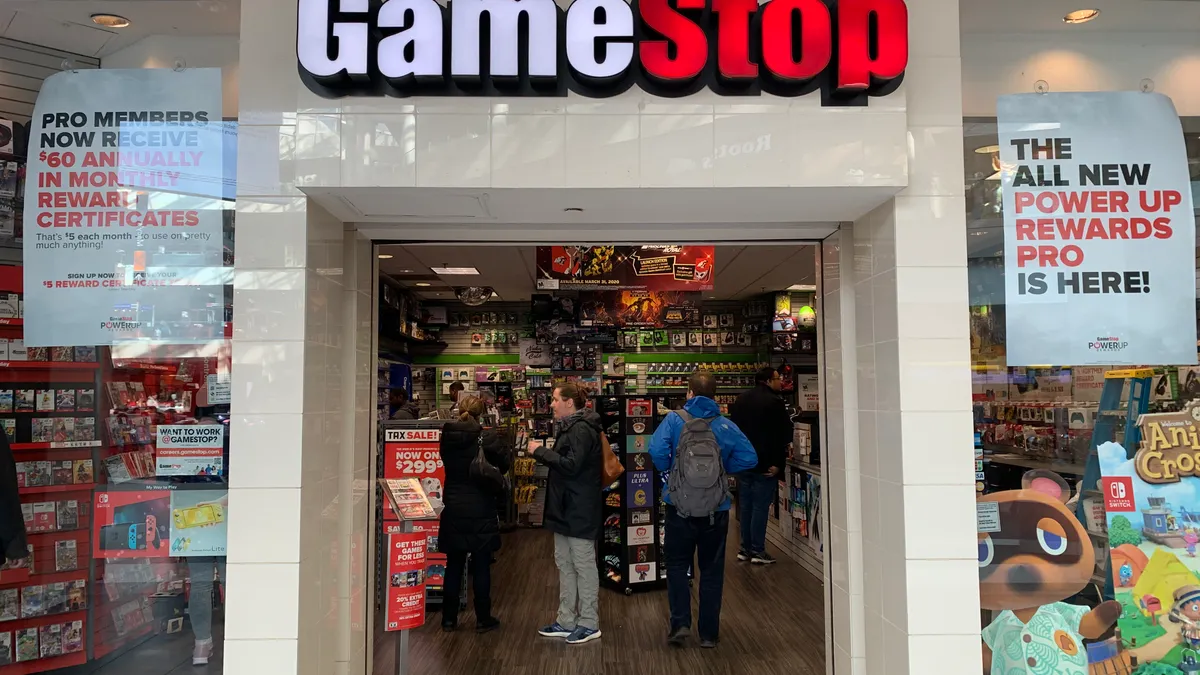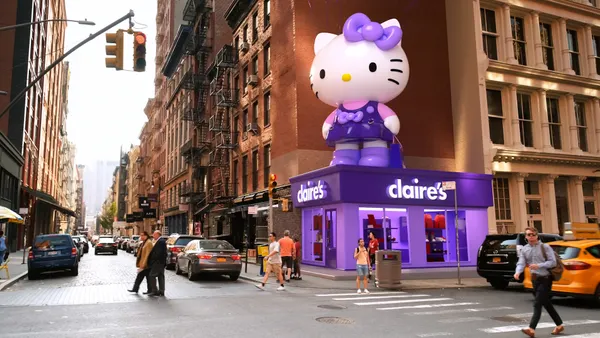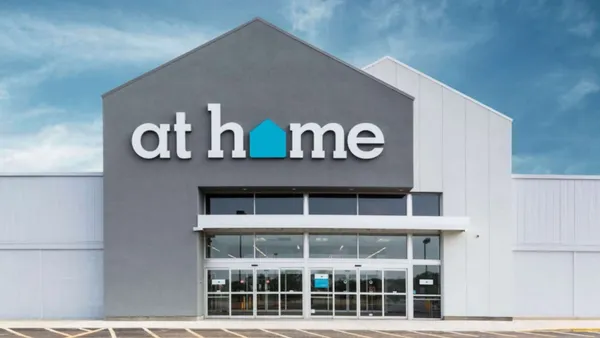Dive Brief:
- GameStop's stock has famously exploded over the past two weeks or so. At the video game retailer's stores, however, the company's challenges continue.
- In December, visits to GameStop were down 24.1% year over year, according to foot traffic analytics firm Placer.ai. For the entire year of 2020, average monthly traffic was down 27.8%.
- For the first three weeks of January, year-over-year visits to GameStop stores were down by more than 12%, and down as much as 20.3% on the week of Jan. 18, according to emailed data from Placer.ai.
Dive Insight:
GameStop's name has become a byword for many things over the past two weeks, though none of those things have much, if anything, to do with the retailing of video games. The boom in stock prices (which has largely fallen from its most recent peak on Friday) has been pegged to day-to-day trading realities and social media, not directly to any changes at the company or its circumstances.
But before the stock explosion, GameStop entered a period of transition with some momentum. Chewy founder and former CEO Ryan Cohen bought more than 10% of the retailer's stock through his investment firm with an activist plan to transform GameStop into a "technology company" and away from brick-and-mortar retailing.
"Unfortunately, it is evident to us that GameStop currently lacks the mindset, resources and plan needed to become a dominant sector player," Cohen said in a November letter to GameStop's board. "The Company remains in long-term secular decline due to its apparent unwillingness to pivot with urgency and grow with gamers."
Since then, Cohen and two other former Chewy executives have been installed on GameStop's board, portending changes at the company. (Cohen declined through a spokesperson to talk with Retail Dive about his plans for GameStop.)
GameStop has also crossed a major mile marker with the release of the latest gaming hardware systems. After sales plummeted in 2019, executives largely blamed the hardware transition, saying customers were holding off on purchases while awaiting the new systems.
When the systems came out, GameStop leaders said demand was off the charts, though also acknowledged that they've had supply issues. And even with demand for the systems and games high, and e-commerce rising by more than 300%, GameStop's top-line sales fell during the holiday season due to global COVID-19 surges, store closures and other factors.
In the coming years and beyond, GameStop faces an existential challenge in adapting to the digitization of its core product. Many in both the investing and retail world have compared it to Blockbuster and other media retailers that have struggled with the advance of digital technology. GameStop has tried to adapt through sales of other products, partnering with game makers, and a (not thoroughly outlined) plan to turn its stores into cultural hubs for gamers.
All of that was before Cohen's arrival to the board, and GameStop's stock explosion. Placer.ai's data shows the persistent challenges for the retailer, especially during the COVID-19 era and in spite of the company's meoteric stock rise. Other data affirms that as well. According to Gravy Analytics data sent to Retail Dive, consumer visits to GameStop during the week of Jan. 17 (the week before its stock took off), were 23% below pre-COVID levels.














